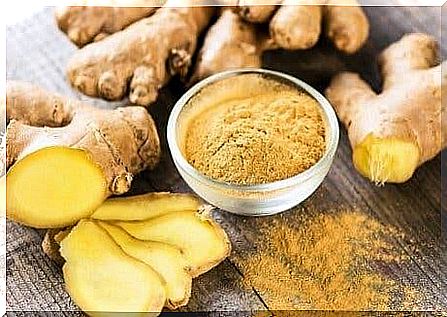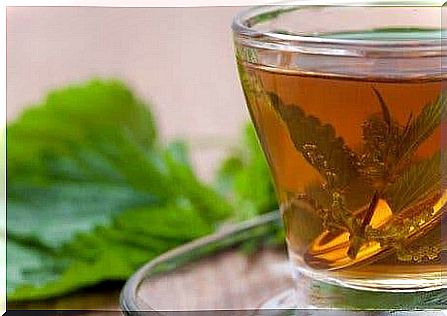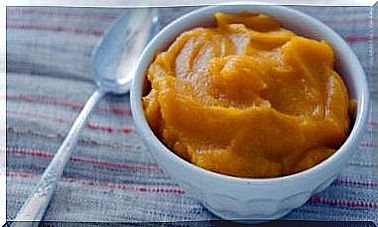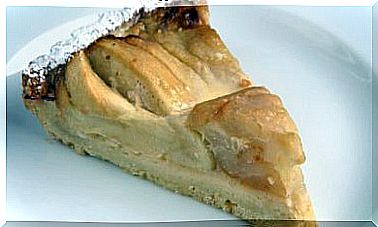Increased Uric Acid Level: These 6 Medicinal Teas Help!
A high uric acid level can have very unpleasant consequences. Fortunately, there are several teas that can help you flush out excess uric acid. Read on to learn more about this topic.

Your doctor’s diagnosis is increased uric acid levels? Then you should know that uric acid is a breakdown product of the purine metabolism and that uric acid levels can be regulated with the right diet.
The body normally excretes uric acid through the kidneys and urine. But when the uric acid level is very high, uric acid crystals that are not properly drained often accumulate in the joints. Hyperuricemia develops, which, among other things, can trigger gout.
Medical treatment usually includes drugs to reduce uric acid levels and anti-inflammatory drugs. In many cases, however, a change in diet and various dietary supplements are sufficient to control uric acid levels.
Today we are introducing you to 6 herbal teas that can help you with this.
Elevated Uric Acid Levels: These Teas Can Help You!
When uric acid levels are too high, it is extremely important to take appropriate measures to avoid complications. At first you are not aware of this, but over time the uric acid crystals accumulate in the joints and lead to inflammation and pain. An elevated uric acid level must therefore be monitored.
Various herbal teas stimulate the kidney functions and the elimination of residues via the urine. However, you should always speak to and seek advice from your doctor first. If he finds these herbal teas a helpful supplement for you too, you can take advantage of the benefits.
1. Ginger tea

Various scientific studies suggest that consuming ginger tea can reduce pain caused by increased uric acid levels. While more research is needed, it is a good addition to the treatment of diseases such as gout.
ingredients
- 1 teaspoon grated ginger root (7 g)
- 1 cup of water (250 ml)
- Bee honey (optional)
preparation
- Add the grated ginger to the water and bring everything to a boil.
- Then you let the tea steep for a few minutes.
- Then pour it through a sieve to remove the solids.
- If you wish, you can then sweeten the ginger tea with honey.
Ingestion
- Drink one cup in the morning and then another 1 or 2 cups during the day.
- After two weeks you take a week off and then start all over again.
2. Elevated uric acid level? Celery tea can help
Celery is very beneficial when it comes to reducing uric acid levels. This vegetable has long been considered one of the best foods for gout, fluid retention, and other urinary tract problems.
ingredients
- 1 tablespoon celery leaves (15 g)
- 1 cup of water (250 ml)
preparation
- Boil the celery leaves in water.
- Then you let it steep a bit and then pour the tea through a sieve.
Ingestion
- Drink one cup of celery tea on an empty stomach and then another 2 cups during the day.
- You should do this at least three times a week.
3. Nettle tea

This “weed” (Urtica dioica) has very interesting health-promoting properties and has been used for gout and joint pain for a long time. Stinging nettles have diuretic properties and support kidney function. They increase urine volume and lower uric acid levels.
ingredients
- 1 tablespoon of nettle leaves (15 g)
- 1 cup of water (250 ml)
preparation
- Bring the nettles to a boil in the water, then let them steep for a few minutes.
- As soon as the tea is lukewarm, you can drain the leaves.
Ingestion
- Have a cup of nettle tea in the morning.
- Repeat this for two weeks.
4. Elevated uric acid level? Try hibiscus tea
Hibiscus tea is also one of the classics with elevated uric acid levels. The hibiscus flower reduces uric acid in the blood and prevents the crystals from building up in the joints.
ingredients
- 1 teaspoon dried hibiscus flowers (7 g)
- 1 cup of water (250 ml)
preparation
- Boil the hibiscus in the water for 3 to 5 minutes.
- Then pour through a sieve and consume.
Ingestion
- Drink 1 cup of hibiscus tea on an empty stomach for 20 days.
5. Dandelion tea

This meadow herb also has very beneficial properties. Its diuretic effect increases the volume of urine and simplifies the elimination of residues. Although the effect of dandelion against gout has not been scientifically proven, it is said to be very helpful in controlling hyperuricemia.
ingredients
- 1 tablespoon dandelion (15 g)
- 1 cup of water (250 ml)
preparation
- Boil the dandelion in water, let it steep, and then pour the tea through a sieve.
Ingestion
- Drink 1 cup in the morning on an empty stomach, then another 2 to 3 cups during the day.
- Do this regimen for 2 weeks.
6. Elevated uric acid level: birch tea can help!
Birch tea has cleansing properties that are very useful for reducing uric acid levels in the blood, among other things. It also supports the elimination of toxins from the body and the functions of the kidneys.
ingredients
- 1 tablespoon birch bark (15 g)
- 1 cup of water (250 ml)
Ingestion
- First, boil the birch bark in the water for 2 to 3 minutes.
- Then let it steep briefly and pour through a sieve to remove the birch bark.
Ingestion
- Drink 3 cups of birch bark tea daily for 20 days.
Final remark
It is very important to remember that these teas may not work the same for everyone. Also, don’t forget that the scientific evidence is limited. Most of the time, it’s just anecdotal data that needs further study to be confirmed.
However, herbal teas can be very beneficial as supportive treatment. However, before taking it, be sure to ask your doctor about possible side effects and contraindications.









